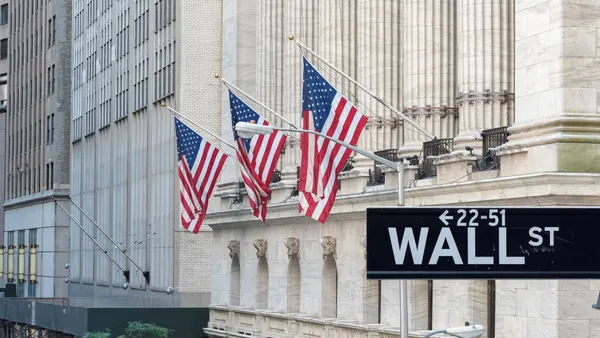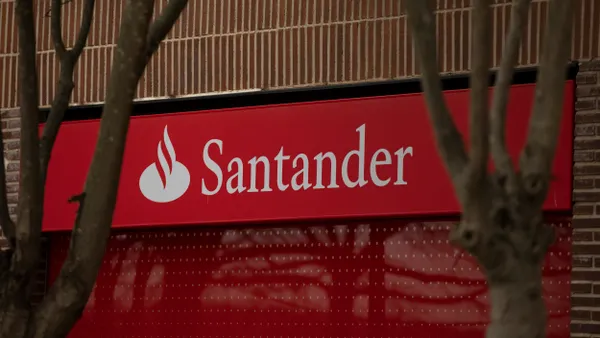Dive Brief:
- The nation’s banks are overly reliant on the fee income they collect when customers overdraw their accounts, Consumer Financial Protection Bureau (CFPB) Director Rohit Chopra said Wednesday, adding the regulator plans to crack down on financial institutions that are "hooked" on the practice.
- Chopra’s statements coincided with the agency’s release of two research reports, including one that found overdraft fee revenue in the industry reached $15.5 billion in 2019. The CFPB will enhance its scrutiny of banks that are heavily dependent on overdraft fees, which "continue to dwarf other sources of fees, like account maintenance and ATM fees," Chopra said.
- The CFPB’s pledge to boost scrutiny of overdrafting comes as a greater number of financial institutions revamp their policies regarding the practice. Capital One on Wednesday announced it would eliminate overdraft fees starting early next year.
Dive Insight:
"Rather than competing on transparent, upfront pricing, large financial institutions are still hooked on exploitative junk fees that can quickly drain a family’s bank account," Chopra said Wednesday.
Chopra highlighted that while some financial institutions have introduced alternative models, he said overdraft fees are still extremely prevalent across retail banking.
"For many big banks, overdraft fees are still the steady, reliable, predictable, easy revenue that shareholders love," he said.
JPMorgan Chase, Wells Fargo and Bank of America brought in 44% of the total overdraft fees reported in 2019 by banks with assets over $1 billion, the CFPB said. JPMorgan disputed that figure.
"The CFPB’s numbers don’t reflect changes we made earlier this year to our overdraft services, which have already helped 1.7 million customers," Amy Bonitatibus, a JPMorgan spokesperson, said in an emailed statement to Bloomberg. "We eliminated the non-sufficient funds fees and significantly increased the amount a customer can overdraw before overdraft fees are charged."
The decision to end overdraft fees constitutes a sizable loss in revenue for some of the nation’s banks.
The decision to ditch the fee will cost Capital One $150 million per year in revenue, a bank spokesperson said.
The CFPB plans to take action against large financial institutions whose overdraft practices violate the law and is also considering additional policy guidance outlining unlawful practices, Chopra said.
"Law-abiding institutions should not be disadvantaged by these practices," he said.
Chopra asked the CFPB’s bank examiners to prioritize examinations of banks that are heavily reliant on overdraft fees, he said.
"Financial institutions that have a higher share of frequent overdrafters or a higher average fee burden for overdrafting should expect us to be paying them close supervisory attention," he said.
Some bank trade groups took issue with the CFPB’s reports and were quick to issue statements in support of overdraft fees.
American Bankers Association (ABA) President and CEO Rob Nichols said the agency’s research "paints an unrecognizable picture of the largest, most diverse financial services marketplace in the world."
"Consumers enjoy a wide range of choices when it comes to financial products and services, including overdraft protection," he said. "Banks across the country provide overdraft-free account options, including Bank On-certified accounts available at institutions making up more than 50% of the U.S. deposit market share. Indeed, as the CFPB's own research shows, overdraft and non-sufficient fund fees fell by 26.2% in 2020."
Nichols pointed to a Morning Consult survey that found nine in 10 U.S. adults find their bank’s overdraft protection valuable, and that 75% were happy their payment was covered when overdraft protection was used.
"Notably, the Morning Consult survey also shows that a strong majority of consumers believe it is reasonable for banks to charge for overdraft protection," he said.
The CFPB’s research uses "dated information to unfairly criticize banks for providing services many Americans appreciate and value," Nichols said.
"Banks provide customers with multiple tools to help them manage their accounts and avoid overdrawing, including text alerts about low balances and the ability to monitor their accounts digitally," he said. "A more comprehensive analysis by the CFPB would have provided this important context and served to better inform consumers about the choices available to them."
A lack of overdraft options would result in more consumers turning to predatory payday lenders, Consumer Bankers Association (CBA) President and CEO Richard Hunt said in a statement Wednesday.
"Outside of overdraft, few options remain for consumers to meet their short-term liquidity needs within the well-regulated, well-supervised banking system," he said.













